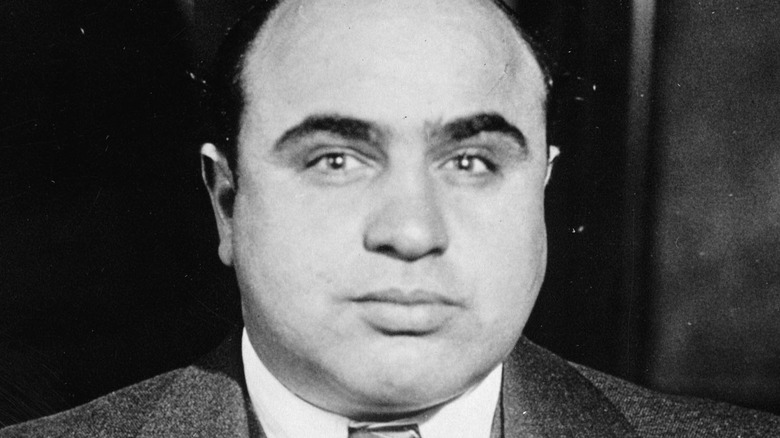Did Al Capone Really Run A Soup Kitchen During The Great Depression?
The Great Depression is without a doubt one of the most significant events in U.S. history. Caused by a seismic economic crash that completely uprooted the foundations of the financial system, the result was the collapse of banks, chronic unemployment, and widespread poverty. History notes that vast swathes of the population were affected by severe food shortages caused by a combination of the economic disaster and adverse weather conditions, leading to a great reliance on soup kitchens.
Soup kitchens were a major part of relief during The Great Depression, feeding hungry Americans dishes of bread and soup, as detailed by The Soup Kitchen. Soup was a useful item to serve because it could easily be watered down to feed more people. Soup kitchens were usually managed in neighborhoods by local churches or charities, but Mental Floss reports that one of the many kitchens was operated by an unlikely character: Al Capone.
Al Capone benefitted from the good publicity of running a soup kitchen
As Smithsonian Magazine reports, Al Capone is best known as one of America's most iconic and ruthless mobsters. During the 1930s he was head of a Chicago gang that was responsible for vast amounts of crime through the running of brothels, illegal distribution of alcohol, and incomprehensibly brutal murders.
Despite being one of Chicago's top villains, Mental Floss explains Capone opened a soup kitchen that declared "free soup, coffee, and doughnuts for the unemployed." The operation eventually grew to feed 2,200 people a day, mainly due to the massive desperation that The Great Depression caused.
Even though Capone's soup kitchen helped to support desolate residents of Chicago, there was a dark side to the endeavor. Capone used the soup kitchen to boost his public image and invested little of his own money into it, choosing instead to threaten local businesses or bribe them to fund it. The kitchen closed in 1932 and eventually became a parking lot – in spite of its Al Capone legacy.

